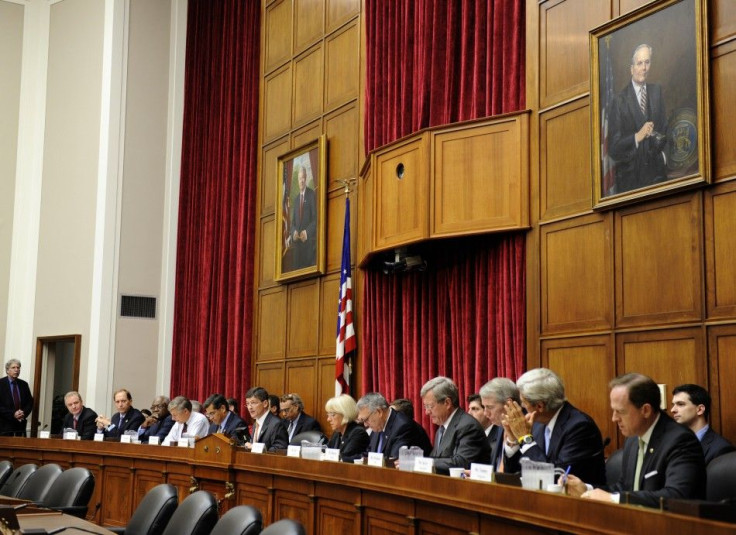Super Committee: Search for Compromise Continues

No clear cut deal appears on the horizon, as the budget deficit super committee's Nov. 23 deadline draws near. The group of 12 lawmakers has, by some accounts, resorted to the old accounting tricks used to paint deceptively rosy pictures in past debates.
Suddenly everyone is talking not about deficit reduction but deficits reduction gimmicks, budget expert and former congressional aide Stanly Collender told the Wall Street Journal.
The tactics include taking into account spending reductions from the drawdown of troops in the Middle East, generous assumptions of an economic recovery and putting off tax reform decisions for next year.
Will Committee Delay Decision on Tax Issue?
Various reports have stated the committee is mulling pushing back tax reform options to next year, to be handled by the appropriate House and Senate committees.
The strategies could be a sign of desperation, after the six Republican members of the committee coalesced around a plan offered by U.S. Sen. Patrick Toomey, R-Penn., to reduce tax deductions available to top earners, while increasing marginal cuts for the rich and cutting spending. The GOP has pushed their proposal as the balanced deal Democrats have been seeking -- a viable mix of spending cuts and revenue increases. Democrats have denied it is a game changer.
The committee's Republican co-chair U.S. Rep. Jeb Hensarling, R-Texas, has indicated the revenue increases in the Republican proposal represent the GOP's limit for revenue increases.
We're facing a jobs crisis and a debt crisis, he said, according to Reuters. We're certainly not going to exacerbate one by trying to address the other. Frankly, that's one of the reasons that we're somewhat stymied at the moment.
We've gone as far as we feel we can go. Any penny of increased static revenue is a step in the wrong direction.
Reports indicate Toomey's proposal is the one Republicans will rally around, and expect Democrats to adopt. The stance may stop negotiations dead in their tracks.
Democrats are still at the table and want to come to a deal, but Republicans took a big step backward today by rallying around a plan that's a non-starter, Democratic aide told Reuters.
Boehner, Reid Apparently Met
With a looming deadlock, House Speaker John Boehner, R-Ohio, reportedly met with Senate Majority Leader Harry Reid, D- Nev., to see if a deal can be reached. Any plan's viability rests on both men's ability to rally their caucuses to approve the bill.
I am still hopeful that a few Republicans will put their country first and come to us with a credible offer, the committee Democratic co-chair, U.S. Sen. Patty Murray, D-Wash., said.
The super committee, formally known as the Joint Select Committee on Deficit Reduction, was established as part of a deficit reduction deal, the Budget Control Act, in exchange for raising the nation's debt ceiling on Aug. 2. While the U.S. government was allowed to borrow up to $2.4 trillion more through 2013, the super committee was charged with reaching a bipartisan consensus on $1.2 trillion in deficit reduction over the next decade, in addition to the roughly $900 billion in deficit reduction Congressional Republicans and President Barack Obama agreed to as part of the August debt deal.
Congress then has until Dec. 23 to pass the committee's recommendations, otherwise trigger cuts, in the form of slashes to defense spending and Medicare benefits, would be automatically enacted.
© Copyright IBTimes 2024. All rights reserved.





















